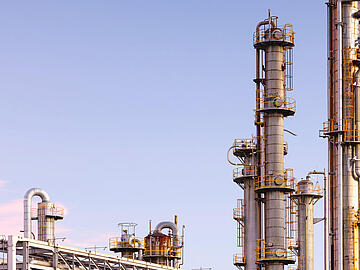
How to manage challenges in analysis of highly-viscous or inhomogeneous organic liquids and gels September 13, 2022 - 3:00 PM - 4:00 PM CEST I 6:00 PM - 7:00 PM CEST
Ask the Expert: How to manage challenges in analysis of highly-viscous or inhomogeneous organic liquids and gels.
Speakers:
Sandro Spiller, Application Specialist ICP techniques
Angela Gröbel, Product Manager Combustion Elemental Analysis
Contents of this web seminar
Start: September 13, 2022 | 3:00 PM - 4:00 PM CEST or 6:00 PM - 7:00 PM CEST
Duration: ~60 min
Language: English
Organic materials are the most challenging sample matrices for element analysis techniques, such as ICP-OES and -MS, AAS, and combustion based elemental analysis techniques for determination metals and non-metal elements like sulfur, nitrogen and chlorine. One reason is the wide concentration range, from a few ppt in applications (like silicone or chlorine in naphtha) to weight percentage in applications, such as total sulfur or nitrogen in crude oil and VGO. Also posing challenges is separating the organic matrix from the elements of interest. While inorganic samples are relatively easy to analyze due to their solid aggregation, the variety of forms organic compounds come in demands special requirements - solid, gaseous, or liquid, from extremely light volatile to highly viscous or paste-like. According to popular belief, analysis quality is determined by the sensitivity of the detection only. But at a closer look, suitable sample treatment, matrix-optimized supply, sharp and complete matrix separation, sufficient elimination of interferences, and intelligent calibration strategies are more important.
In this web seminar we want to share specifically our application experience for analysis of paste-like or other challenging organic samples, such as highly-viscous, high-boiling, inhomogeneous, multi-phasic, or near particulate liquids. As user of element analysis techniques, such as ICP-OES, ICP-MS, AAS, and combustion based elemental analysis you will learn on basis of real-world application examples how you can optimize your analytical workflow to gain the reliable results you need, fully compliant to the relevant industry standards. Users from oil and gas, refineries, petrochemical and chemical industry, production of derived fuels and related contract labs, authorities and R&D center will benefit from this web seminar.
